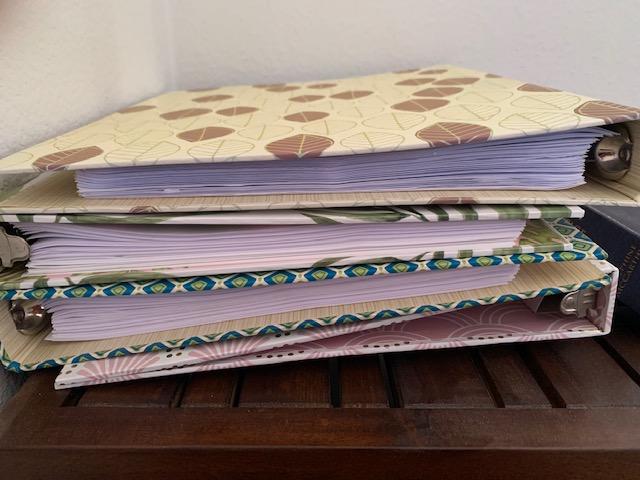Writing scares the crap out of me.
I’m getting close, with my work on Scratch, to a kind of writing that is very close to dreaming.
Full disclosure: I have crazy-good dream recall, and always have. I remember dreams I had when I was five, six years old. I remember dreams I had when I was a kid that talked to me, helped me understand things about myself, about why I was in conflict with people around me.
In my teens and twenties, I started writing down my dreams, and from time to time I do it consistently–every night or every other night.
I often remember multiple dreams. I remember them in great detail. I sometimes skip writing out my dreams because it’s not unusual for the account of a single dream to run two or three pages, and before I know it I’ve exhausted the first two or three hours of my day recording dreams.

And then there’s interpreting them. Also time-consuming. And quite honestly, it’s taken a lifetime to get even marginally decent at that. I’ve come to realize that dreams are a language. They are a language that use “images” but not, needless to say, images of the eyeball. James Hillman, in Dream and the Underworld, wrote about this. “Psychic images are not necessarily pictures and may not be like sense images at all. Rather they are images as metaphors.” They not a function of the “front of the eyeballs” but “the flickering patterns within that physical reality, and within the eyes themselves.”
Dreams draw on “pictures” that we store while we’re awake; these pictures are analogous to the letters of a written language. I have a stored “picture” in my mind of a blueberry. Many pictures, in fact, of many thousands of blueberries, sine I’ve encountered blueberries countless times in my life: fresh, frozen, in pancakes, on the bush, in my hand, in the store. And so my dream takes a blueberry, but then adds to it. The blueberry in my dream is enormous, the size of a softball. It’s in my parents’ kitchen, in a bowl. It has a soft spot — it it overripe. It belongs to someone else, not me. She is pleased by it. I seem to have tasted it, eaten it, but it’s still there — the tasting and eating was, within the dream, a thought rather than an action.
My dream has taken a blueberry, and added to it. A blend of contextual and fantastical elements. The blueberry is literally distorted, and in the distortion and the context it is transformed from a thing-in-itself to an element of thought-stuff. And that element is so loaded with meaning that it becomes meaning itself.
It’s backwards, to try to figure out what a dream means. Dreams are meaning. They are nothing but meaning.
The difficulty is that we are like dogs listening to English. We’re aware, dimly, that there is some reason this primate that feeds us is making odd noises with its mouth. We grasp, at times, that some of the noises correspond to actions. “Want your dinner?” corresponds, generally, to food being dumped into our dish.
But there’s so much more, there. And we know it. We can’t understand it, but we know it. (My dog stares at me. Stands and stares at me, as I talk to her in my long babbling incomprehensible sentences. She can’t understand me. She’d like to — maybe — but she can’t. The old Far Side cartoon. blah blah blah GINGER blah blah blah.)
So it takes work, to interpret a dream. To stay with it, long enough, to consider every image and every nuance of every image, and then how the images fit together — because they do. The images are words and the words, together, become sentences. Dreams are replete with “if this, then that.” “First this, then that.” Replete.
I’ve been recording my dreams for years. And at first, I did it because I felt there was some glamour to it. It was exciting to find, in dreams, hints of future events (and sometimes, more than hints. I dreamed my father was going to die weeks before he became sick). It was exciting to become lucid in dreams, to wake up and find myself in a fantastical, shimmering world of only thought, only ideas, to know I was at the same time both sleeping and awake.
But over time, I felt sometimes weary of it all. So many dreams were a re-telling of what I know, anyway. This relationship is problematic. This other relationship is a comfort to me. I’m afraid of this happening. I am seeking God. I wish we didn’t have to die. I’d rather die than not find God.
So why bother? Why record dreams? Why, after recording them, go through the tedious exercise of “interpreting” them, trying to figure out what they are saying?
But then recently, it struck me that the value in this exercise is the same as learning another spoken language. Have you ever tried to learn another spoken language? Have you ever gotten to the point in your work where you’re no longer “translating” as you try to read or interpret it? When the other language is suddenly on its own track in your head, its native vocabulary and syntax suddenly suddenly have meaning in your head, without having to first be corresponded to your native language?
I noticed, one day, that this was starting to happen to me as I “interpreted” my dreams. Suddenly, I was no longer looking at a dream image with its distortion and context and saying to myself, “okay, this means this, and this means that.” Suddenly, a string of images — distortion and context and all — were “speaking to me” directly. I didn’t need to mediate them through English, through the metaphor of Waking Reality language. I knew what the dream was saying without that intermediary step.
And I thought, okay. That’s why I’ve been doing this, all these years. To get to this point. To get here. To where the gap between me and my dreaming-self begins to dissolve, to merge.
I read a novel last year. Well, I should say, I finished it last year. I started it in 2019. A Glastonbury Romance, by John Cowper Powys. I took my time, reading it, because from the first page I knew it would be, for me as a writer, a momentous book. One of those books that when you start to read, you think, “oh wow. What the heck is this guy trying to pull off, here?” And so as you read you’re enjoying it as a novel, but there’s always another part of you thinking about that question. What the heck is Powys trying to pull off, here?
There are probably a lot of ways to answer that question, but I’ll tell you one answer: he was trying to dream. The novel is a dream.
I’m working on Scratch, now, as I’ve mentioned, and it’s a different kind of project than my Marion Flarey books.
It’s a dream.
For who ever began a dream? People always find themselves immersed in the the middle of some dream or other. The essence of sleep does not lie in dreaming; it lies in a certain dying to the surface life and sinking down into the life under the surface, where the other life — healing and refreshing — exists like an immortal tide of fresh water flowing beneath the salt water of a turbid sea. It is sufficient to remember the lovely and mysterious feeling of falling asleep compared with the crude, raw, iron spikes of the unpleasant things that happen in dreams to realize the difference. Between the process of going to sleep and the process of dreaming exists a great gulf. They seem to belong to different categories of being.
John Cowper Powys, A Glastonbury Romance
And because Scratch a dream, I have to let go as I write.
And that’s a horrible feeling. It’s scary, viscerally scary.
I’m not talking about the way writers use fiction to create fantasies about scary things. It’s no secret that stories work when they induce and then relieve anxieties. If a novel is any good, it’s because something is going wrong. A protagonist is in trouble, therefore the writer is, by necessity, plumbing the depths of human experience to explore “things that go wrong,” whether that takes the form of a dangerous international spy ring, an evil monster, a lost love, a serial killer on the loose, a natural disaster. Good writers face our fears and bring them to life on the page.
I’m talking about something different: the sensation I feel in my body when I write fiction. It’s a feeling that I have to let go; that what is happening as I write is not me, controlling things. It’s a not-me, coming through.
The characters in Scratch aren’t “characters,” they are dream-things. Dream-things crawling across a dream-scape.
I’ll be honest. I avoid writing, more than I care to admit, because I don’t like the way it feels. It’s a loss of control. Yes, there are periods when I’ve let go that I feel a kind of ecstasy, as well, which I suppose is the flip side of giving up control.
But ugh. The feeling of writing.
Do you know what I mean? Have you felt it, yourself?

